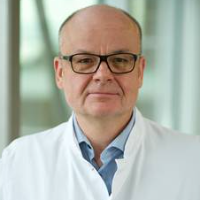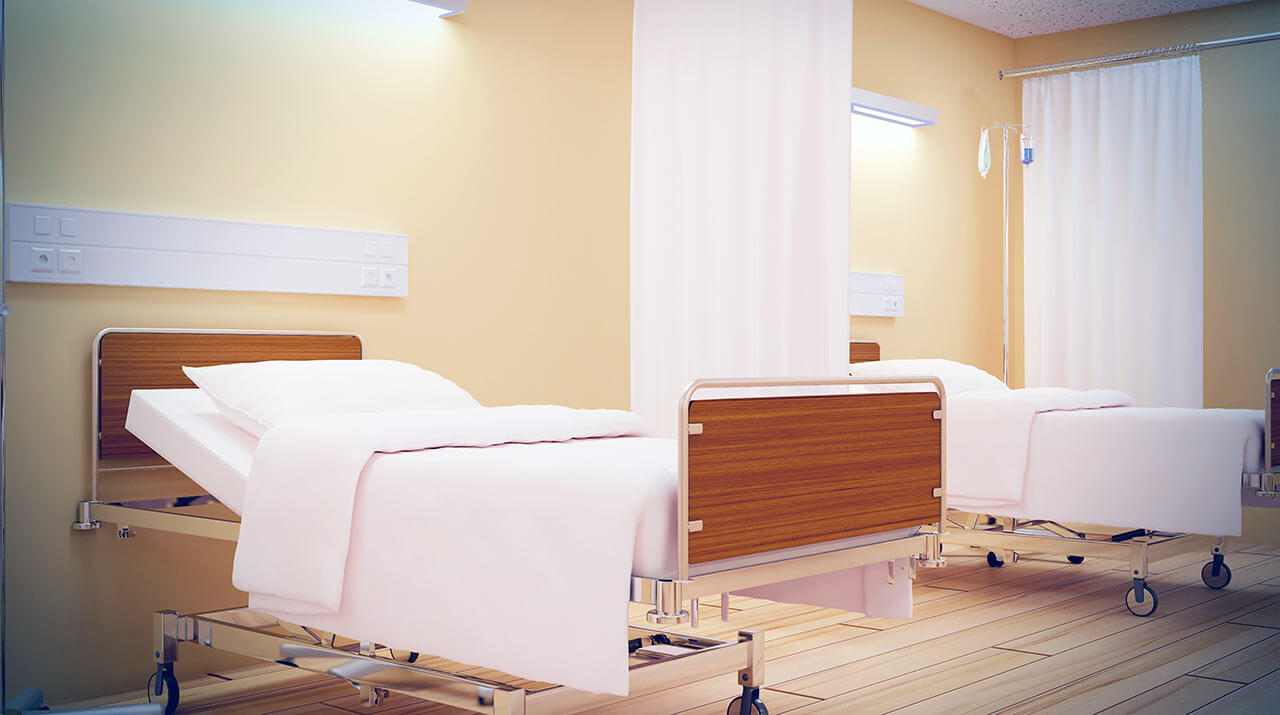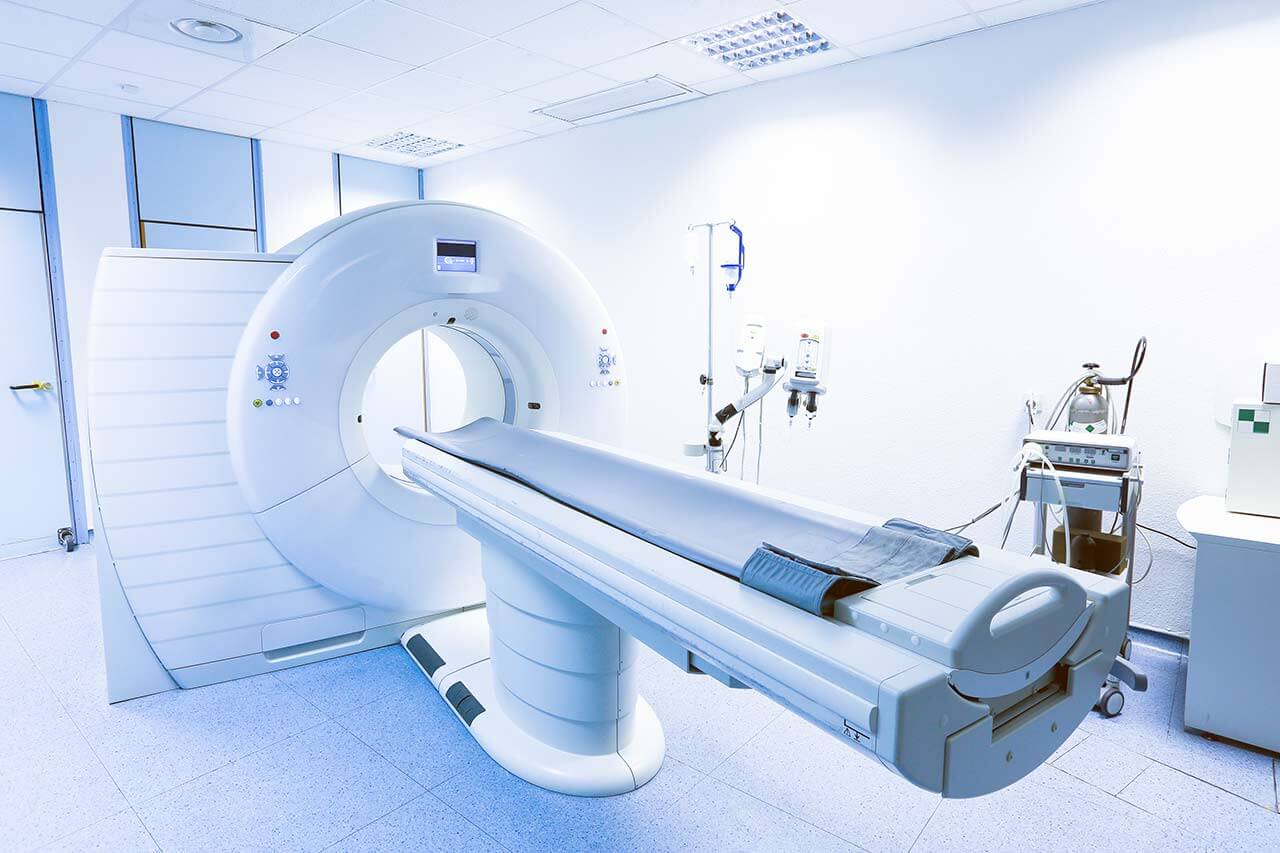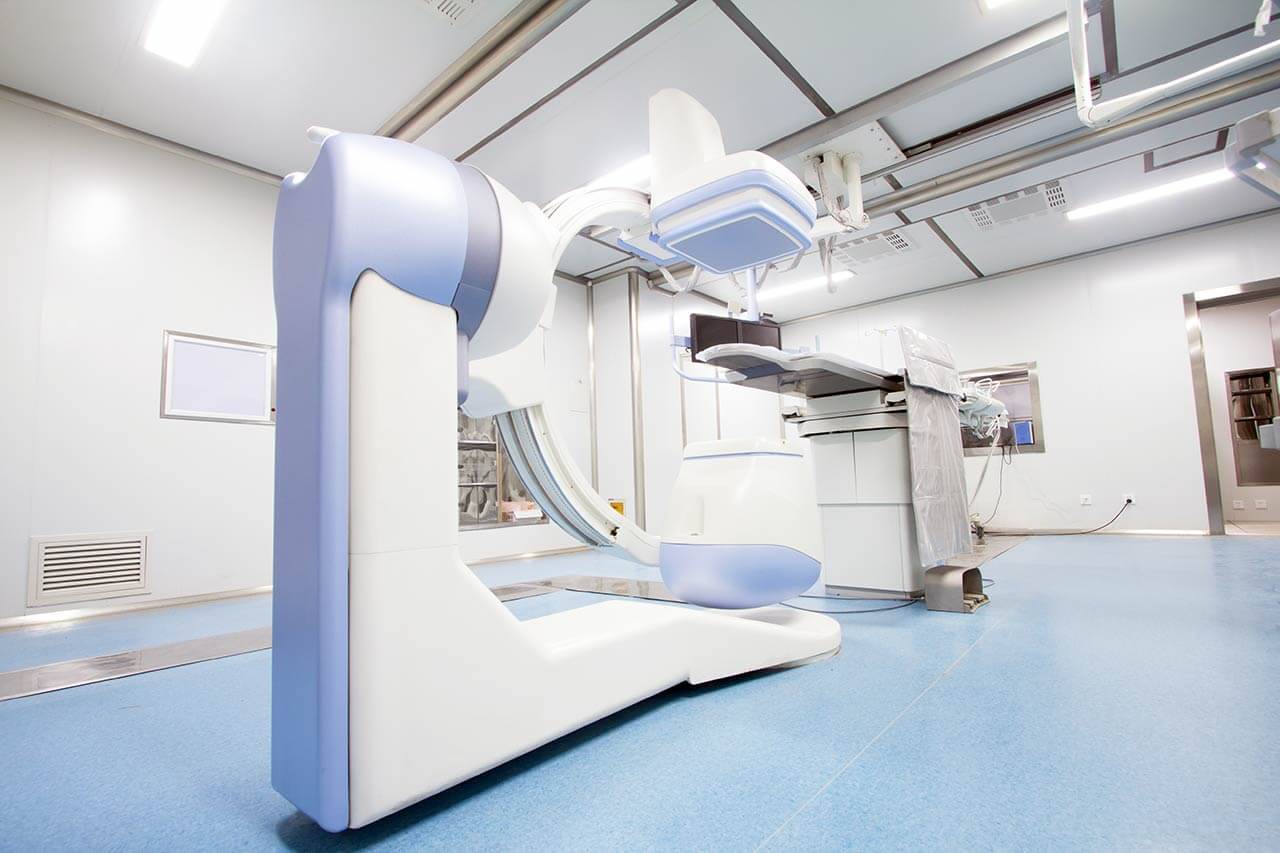
The program includes:
- Initial presentation in the clinic
- clinical history taking
- physical examination
- laboratory tests:
- complete blood count
- general urine analysis
- biochemical blood test
- inflammation markers (CRP, ESR)
- blood coagulation analysis (aPTT, PT, INR)
- HPV PCR diagnostics
- gynecological examination
- colposcopy
- vaginal swab
- ultrasound of pelvic organs
- biopsy with histological study (if clinically indicated, additional cost is 2000 €)
- nursing services
- services of all leading experts
- explanation of individual treatment plan
Required documents
- Medical records
- Pelvic ultrasoud (if available)
Service
You may also book:
 BookingHealth Price from:
BookingHealth Price from:
About the department
The Department of Gynecology, Mammology and Obstetrics at the University Hospital Greifswald offers all the options of modern medicine in the areas of its specialization. Progressive methods of diagnostics and treatment of diseases of the female reproductive system and breast are available here. The focus of the department's doctors is on patients with gynecologic cancers, breast cancer, urinary incontinence, hormonal imbalances caused by gynecological pathologies, etc. Breast cancer treatment takes place in a highly specialized center certified according to DIN EN ISO 9001:2008 standards by the German Cancer Society (DKG) and the German Society of Senology (DGS). An integral part of the department's clinical practice is obstetrics. More than 1,000 babies are born in the modern delivery rooms of the medical facility every year. Obstetricians provide expectant mothers with personalized pregnancy management, safe childbirth, and high-quality postpartum care. The department regularly demonstrates high treatment success rates, which are facilitated by the use of innovative technologies and modern treatments. The Head Physician of the department is Prof. Dr. med. Marek Zygmunt.
The key task of the department's gynecologists is the treatment of malignant diseases of the female reproductive organs. The department's doctors have vast experience in providing medical care to patients with ovarian, endometrial, cervical, vulvar, and vaginal cancers. Cancer treatment is a complex clinical task and requires an interdisciplinary approach, so not only gynecologists are involved in the therapeutic process but also other specialists, including oncologists, surgeons, radiation therapists, radiologists, and experts in nuclear medicine. Doctors from related specialties cooperatively study the results of the patient's comprehensive diagnostics, after which they begin to develop an optimal treatment regimen. Ovarian cancer treatment involves a surgical intervention, during which gynecologists remove the tumor (in the early stages) or the entire ovaries and uterus (in the advanced stages). Almost all patients require chemotherapy. In some cases, targeted therapy may also be prescribed. The mainstay of treatment for endometrial cancer is also tumor resection surgery. In the advanced stages, radical surgery may be performed, during which the uterus, ovaries, and fallopian tubes are removed. Surgical treatment is complemented by chemotherapy, radiation therapy, and/or hormonal therapy. The department's gynecologists strive not only to provide effective treatment but also to make it as sparing as possible, so surgical interventions are most often performed using minimally invasive techniques. In addition, doctors tend to avoid removing organs of the female reproductive system in young women, thereby providing an opportunity to preserve fertility.
The team of the department's gynecologists admits women with benign pathologies, including uterine fibroids, endometriosis, cervical dysplasia, polycystic ovary syndrome, and infectious diseases. The specialists have vast professional skills in treating urinary incontinence in women. This pathology is quite common and causes significant discomfort in everyday life. In many cases, the department's doctors use only conservative therapy, including therapeutic exercises to strengthen the pelvic floor muscles, physiotherapy, electrical stimulation, drug therapy, and the placement of pessaries. If a woman suffers from stress urinary incontinence, surgical treatment is most often required. The department successfully performs minimally invasive TVT and TVT-O sling procedures, the essence of which is to strengthen the sphincter apparatus of the bladder with the help of an artificial loop. In some cases, good treatment results can be achieved with Botox injections. The department's doctors select the optimal type of treatment on an individual basis.
Breast cancer is one of the most common and complex oncological pathologies in women today. A highly specialized Breast Center operates in the department that treats this malignant disease. The therapeutic regimen is based on tumor resection surgery. In the early stages of breast cancer, an organ-preserving operation (lumpectomy) is performed, and in the advanced stages, radical interventions to completely remove the breast (mastectomy) are usually required. Surgical treatment can be supplemented with chemotherapy, radiation therapy, targeted therapy, hormone therapy, antibody therapy, etc. A specific complex of therapeutic measures is determined based on the stage of cancer, tumor location, type, and aggressiveness. The department also offers plastic reconstructive surgery to restore breast aesthetics after radical resections.
The department's competence includes the provision of high-quality obstetric services. The medical facility provides expectant mothers with high-quality prenatal and postnatal care, as well as safe childbirth. More than 1,000 babies are born in the department's delivery rooms every year, so the department's obstetricians have vast experience and do their best to make the childbirth go smoothly without any complications. Maternity rooms are equipped with everything necessary for a successful childbirth and meet the standards of modern obstetrics.
The department's main clinical focuses include:
- Gynecology
- Diagnostics and treatment of benign diseases of the female reproductive system
- Uterine fibroids
- Endometriosis
- Cervical dysplasia
- Polycystic ovary syndrome
- Genitourinary infections in women
- Hormonal imbalances caused by gynecologic diseases
- Urinary incontinence
- Diagnostics and treatment of malignant diseases of the female reproductive system
- Endometrial cancer
- Ovarian cancer
- Cervical cancer
- Vulvar cancer
- Vaginal cancer
- Diagnostics and treatment of benign diseases of the female reproductive system
- Mammology
- Diagnostics and treatment of benign breast diseases (for example, cysts and mastopathy)
- Diagnostics and treatment of breast cancer (including breast reconstruction after radical resections)
- Obstetrics
- Integrated management of pregnancy, including high-risk pregnancies
- Childbirth (also pain management, for example epidural anesthesia, acupuncture, and aromatherapy)
- Postnatal care for mother and child
- Other medical services
Curriculum vitae
On August 1, 2006, Prof. Dr. med. Marek Zygmunt headed the Department of Gynecology, Mammology and Obstetrics at the University Hospital Greifswald. He succeeded Professor Wolfgang Straube, who retired on April 1. Dr. Zygmunt studied in Aachen, Dortmund, London and Giessen. He held the position of the Deputy Head of the Department of Gynecology at the University Hospital Giessen. During his work here, the doctor made a significant contribution to the expansion of the range of endoscopic procedures and the creation of minimally invasive surgical techniques in cancer surgery. His research activities (within the internationally recognized working group) mainly focus on oncology and reproductive medicine. The gynecologist is also a recognized expert in the field of perinatology, obstetrics, including the prenatal diagnostics and therapy.
Photo of the doctor: (с) Universitätsmedizin Greifswald
About hospital
According to the reputable Focus magazine, the University Hospital Greifswald is included in the ranking of the best medical complexes throughout Germany!
The hospital is one of the oldest healthcare facilities in Germany, with long traditions and an excellent reputation. The history of the hospital begins in 1456, when the Faculty of Medicine at the University of Greifswald was founded. During this time, the hospital has managed to earn recognition in the national medical arena and gain prestige abroad. The hospital has 19 institutes and 21 specialized departments. The key to successful clinical practice is the combination of state-of-the-art equipment and highly qualified medical personnel who are actively engaged in the development of effective medical techniques and implement them in everyday practice.
The medical team of the university hospital has more than 4,400 employees, including world-famous professors who regularly undergo advanced training in the leading European and American hospitals, where they share their experience with foreign specialists. The doctors at the medical facility annually treat about 180,000 patients. At the same time, the specialists often provide medical care to patients with complex clinical cases, even in those cases that doctors at other medical centers consider hopeless. The hospital has more than 1,000 beds for inpatients, and many highly-specialized outpatient clinics are available in the medical facility for counseling and outpatient medical care.
The hospital presents all the fields of modern medicine. According to Focus magazine, the medical complex is recognized as one of the best in Germany for treating bowel cancer, bladder cancer, malignant brain tumors, skin cancer, multiple sclerosis, Parkinson's disease, dementia, cardiovascular pathologies, knee and hip pathologies, as well as ophthalmic and proctologic diseases. Diagnostic and therapeutic procedures are carried out in strict accordance with national and international standards, which ensures top-class medical care.
The medical team at the hospital makes sure that each patient feels as comfortable as possible during the therapeutic process. Doctors and nursing staff show humanity and understanding, striving to support each patient in every possible way on the path to recovery.
Photo: (с) depositphotos
Accommodation in hospital
Patients rooms
The patients of the University Hospital Greifswald live in comfortable single and double rooms. The patient rooms are made in bright colors and are quite cozy. The furnishings of a standard patient room include an automatically adjustable bed, a bedside table, a TV, and a telephone. The patient room has a table and chairs for receiving visitors. There is also free Wi-Fi in the patient rooms.
If desired, patients can live in enhanced-comfort rooms. In such rooms, patients are additionally offered toiletries, a bathrobe, and a change of towels.
Meals and Menus
The patients of the hospital are offered three healthy and tasty meals a day: a buffet breakfast, a hearty lunch, and dinner. The hospital also houses a cafeteria where one can have a tasty snack, a cup of aromatic coffee, tea, or soft drinks.
Patients staying in enhanced-comfort rooms are offered a special menu with a wide range of main courses, appetizers, desserts, and drinks.
Further details
Standard rooms include:
Religion
The services of representatives of religions are available upon request.
Accompanying person
Your accompanying person may stay with you in your patient room or at the hotel of your choice during the inpatient program.
Hotel
You may stay at the hotel of your choice during the outpatient program. Our managers will support you for selecting the best option.




